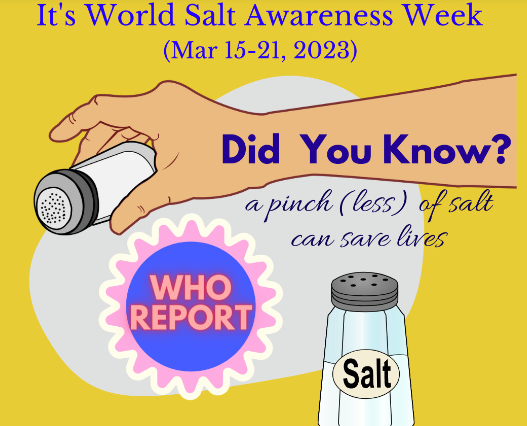Understanding the WHO Report on Salt and Hypertension (GS Paper 3, Health)

Context
- In its latest report titled "Action on Salt and Hypertension," the World Health Organization (WHO) sheds light on the alarming health risks associated with excessive salt consumption.
- This comprehensive study, now in its second edition, delves into salt benchmarks across various dietary categories, revealing a significant public health concern.
Global Health Implications
- The WHO report underscores the global ramifications of high sodium intake, attributing almost two million out of eight million annual deaths to poor dietary choices, notably excessive salt consumption.
- Sodium, primarily sourced from salt, plays a crucial role in maintaining plasma volume and cellular function.
- However, an overabundance of sodium in the diet is linked to a myriad of serious health complications, including but not limited to heart disease, strokes, stomach cancer, obesity, liver disease, and chronic kidney disease.
Mechanism of Elevated Blood Pressure
- One of the key insights provided by the report is the mechanism through which excess sodium raises blood pressure.
- Sodium's propensity to retain water leads to fluid accumulation within the body, resulting in increased blood volume and heightened pressure on the cardiovascular system.
- Prolonged high blood pressure can inflict severe damage on the heart and blood vessels, escalating the risk of heart attack, heart failure, and kidney disorders.
WHO's Recommendations
- In light of these findings, the WHO advocates for a daily salt intake of less than 5 grams, equivalent to less than 2 grams of sodium, to mitigate associated health risks.
- By adhering to this guideline, individuals can curb their sodium consumption and subsequently reduce the likelihood of developing detrimental health conditions.
- It is emphasized that while sodium is an essential nutrient for bodily functions, moderation is imperative to safeguard against adverse health outcomes.
Conclusion
- The WHO report serves as a clarion call for concerted efforts to address the pervasive issue of excessive salt consumption and its detrimental impact on global health.
- By heeding the WHO's recommendations and implementing strategies to monitor and regulate sodium intake, individuals and communities can take proactive steps towards fostering healthier populations worldwide.


